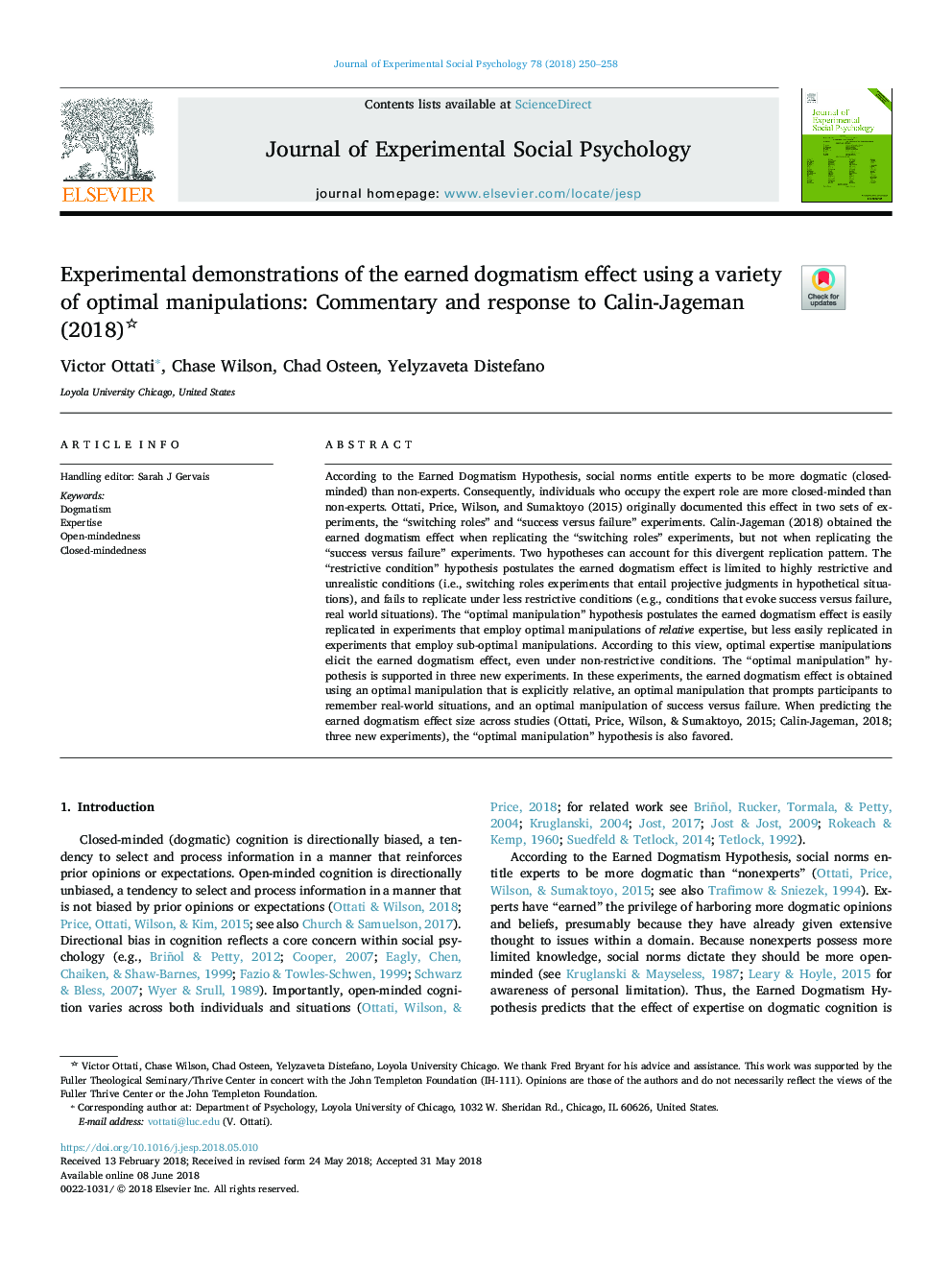| Article ID | Journal | Published Year | Pages | File Type |
|---|---|---|---|---|
| 7324009 | Journal of Experimental Social Psychology | 2018 | 9 Pages |
Abstract
According to the Earned Dogmatism Hypothesis, social norms entitle experts to be more dogmatic (closed-minded) than non-experts. Consequently, individuals who occupy the expert role are more closed-minded than non-experts. Ottati, Price, Wilson, and Sumaktoyo (2015) originally documented this effect in two sets of experiments, the “switching roles” and “success versus failure” experiments. Calin-Jageman (2018) obtained the earned dogmatism effect when replicating the “switching roles” experiments, but not when replicating the “success versus failure” experiments. Two hypotheses can account for this divergent replication pattern. The “restrictive condition” hypothesis postulates the earned dogmatism effect is limited to highly restrictive and unrealistic conditions (i.e., switching roles experiments that entail projective judgments in hypothetical situations), and fails to replicate under less restrictive conditions (e.g., conditions that evoke success versus failure, real world situations). The “optimal manipulation” hypothesis postulates the earned dogmatism effect is easily replicated in experiments that employ optimal manipulations of relative expertise, but less easily replicated in experiments that employ sub-optimal manipulations. According to this view, optimal expertise manipulations elicit the earned dogmatism effect, even under non-restrictive conditions. The “optimal manipulation” hypothesis is supported in three new experiments. In these experiments, the earned dogmatism effect is obtained using an optimal manipulation that is explicitly relative, an optimal manipulation that prompts participants to remember real-world situations, and an optimal manipulation of success versus failure. When predicting the earned dogmatism effect size across studies (Ottati, Price, Wilson, & Sumaktoyo, 2015; Calin-Jageman, 2018; three new experiments), the “optimal manipulation” hypothesis is also favored.
Keywords
Related Topics
Life Sciences
Neuroscience
Behavioral Neuroscience
Authors
Victor Ottati, Chase Wilson, Chad Osteen, Yelyzaveta Distefano,
